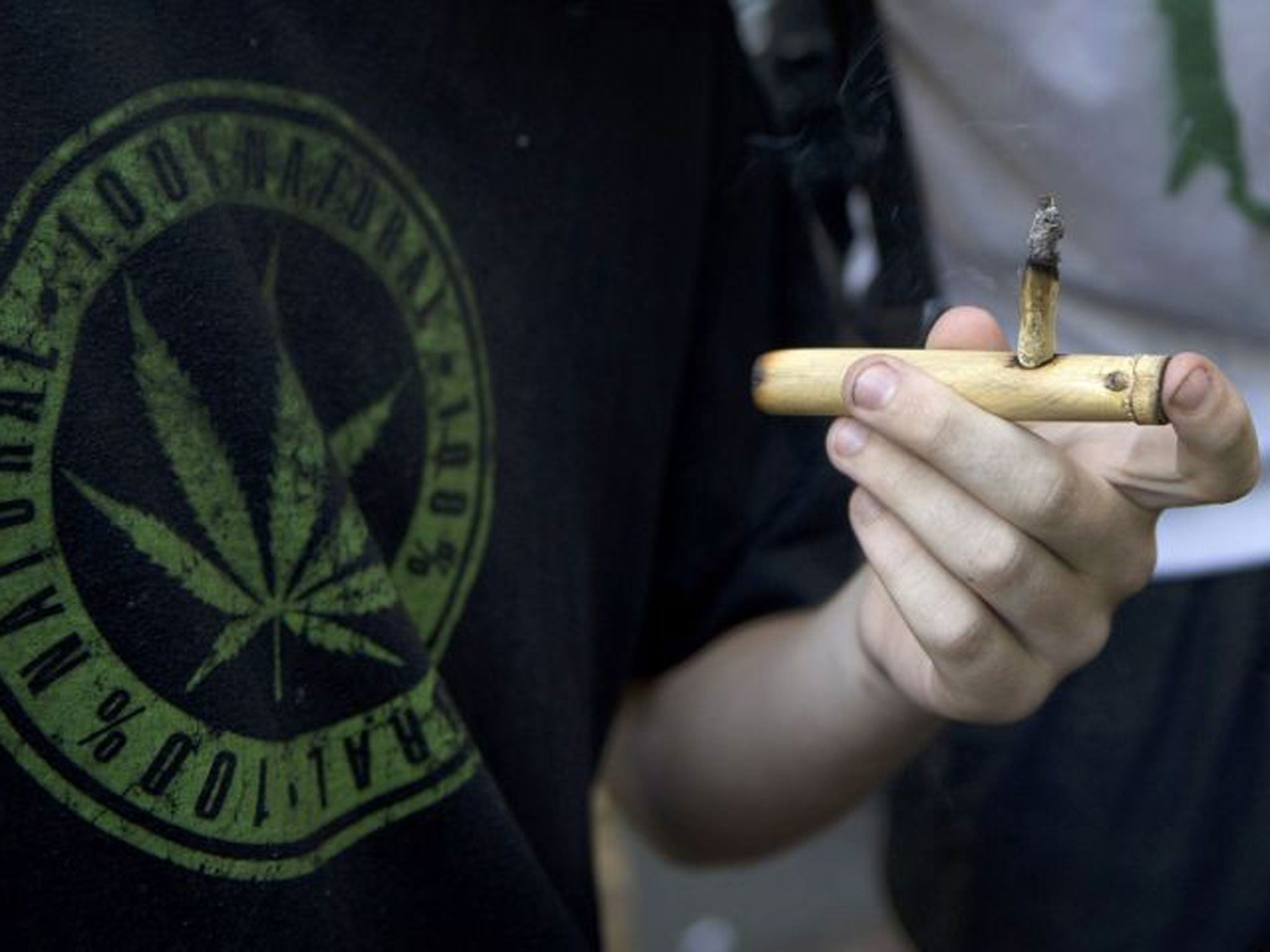It will be a while before Britain follows Uruguay’s approach to drugs
For most political leaders, the issue of drug use and abuse is too difficult to confront anew for fear of a tabloid backlash

Your support helps us to tell the story
From reproductive rights to climate change to Big Tech, The Independent is on the ground when the story is developing. Whether it's investigating the financials of Elon Musk's pro-Trump PAC or producing our latest documentary, 'The A Word', which shines a light on the American women fighting for reproductive rights, we know how important it is to parse out the facts from the messaging.
At such a critical moment in US history, we need reporters on the ground. Your donation allows us to keep sending journalists to speak to both sides of the story.
The Independent is trusted by Americans across the entire political spectrum. And unlike many other quality news outlets, we choose not to lock Americans out of our reporting and analysis with paywalls. We believe quality journalism should be available to everyone, paid for by those who can afford it.
Your support makes all the difference.According to campaigners for the reform of Britain’s drug laws, history was made this week when Uruguay became the first country to legalise the production and sale of cannabis. They insist the vote 7,000 miles away was the most dramatic proof of a global trend towards a new approach to controlling drugs.
The US states of Washington and Colorado have also legalised the recreational use of marijuana and at least another seven, including California, could follow their lead. The subject is also moving up the agenda in nations as diverse as Canada, India and South Africa. Closer to home, soft drugs are nominally illegal in countries including Portugal, Spain, Holland, Belgium and the Czech Republic, but their use has been decriminalised. Their governments prefer to treat regular drug use as a medical and social problem rather than a law and order issue.
But advocates of similar reforms here shouldn’t hold their breath. For most political leaders, the issue of drug use and abuse is too difficult to confront anew for fear of a tabloid backlash.
The new Liberal Democrat Home Office minister, Norman Baker, is more open-minded on the subject than the majority of the political class and is close to completing a comparison of international drugs policies begun by his predecessor, Jeremy Browne.
They are understood to have been impressed by the experience of Portugal, which has the most liberal attitude towards drugs in the European Union, and Mr Baker has said legalising cannabis should be considered alongside all other options. Were he to reach any such radical conclusion, there is no prospect of it surviving negotiations with the Conservative Home Secretary, Theresa May. She is staunchly against reform and last month added the herbal stimulant qat, which is used in Somali and Yemeni communities, to the list of banned substances. She argues that the current system of prohibition, which dates from 1971, is working and cites falling levels of drug use as proof.
The last Labour government was equally hardline, overruling its own advisers to upgrade cannabis from a class C to a class B substance. There is no sign of any different approach emerging from its policy deliberations in opposition. That could leave the Liberal Democrats as the only major party advocating change at the next election.
Nick Clegg has called for a royal commission on drugs (an idea rejected by David Cameron), and his party is also considering calling for responsibility for the issue to be switched from the Home Office to the Department for Health. The potential Lib Dem stance would differentiate it from the other parties, but is hardly likely to become a “red line” in any negotiations with potential future coalition partners. So the status quo will remain in Britain.
Opponents of softening the approach towards cannabis argue that it can act as a gateway towards use of more dangerous substances, and also point out that forms of the drug in circulation tend to be stronger and more addictive than a generation ago. They are also convinced the silent majority of the population backs the 40-year-old tough stance towards drug legislation.
But perhaps the public is more open-minded. An Ipsos Mori poll found that 53 per cent of people supported the legalisation or decriminalisation of cannabis possession. That was shared by 46 per cent of Daily Mail readers, suggesting that discussing drugs reform may not be as politically toxic as David Cameron, Theresa May and Ed Miliband fear.
Join our commenting forum
Join thought-provoking conversations, follow other Independent readers and see their replies
Comments